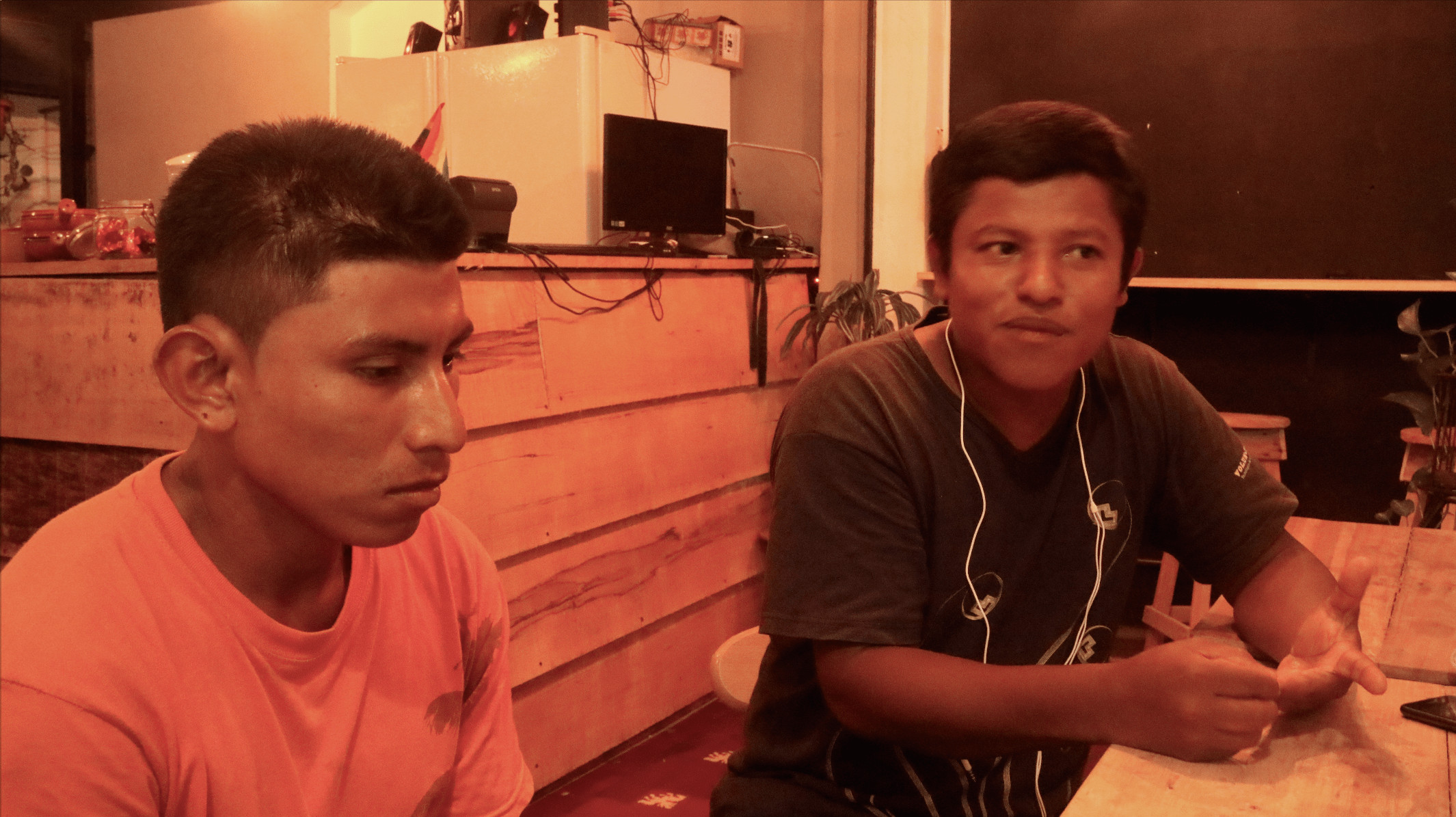This week’s Arts Spotlight interviewees aren’t artists themselves, but they are playing a crucial role in Costa Rican cultural life: helping tourists learn about the traditions of their people, the Bribri.
Because they hail from the beautiful mountains of Talamanca, Limón, living within nature has always been a constant for Roger Blanco and Geider Büitrago. When the Costa Rican Institute of Technology (TEC) got involved with the Bribri community of Amubri, Talamanca, both Blanco and Geider decided to become certified tourist guides supported both by the TEC and the Costa Rican Tourism Board (ICT).
Both Blanco and Büitrago work as tourist guides for a local lodge called Koswak Usuré, which focuses on providing visitors with an in-depth experience of ancestral Bribri culture. For the guides, creating this cultural experience is a way to keep their culture alive while they generate income within their community.
Blanco, 40, is part of the Tubolwak clan, which translates into the “yam guardians.” Büitrago, 28, belongs to the Diuwak clan, which translates into the “water guardians.” Each clan is assigned by their god Sibö (or Sibú) and has a special function within their community.
“There are more than 70 clans within the community, and each one has a special mission within our worldview. We can’t each do the same thing because Sibö distributed these gifts to work in favor of equilibrium,” Blanco told The Tico Times.
On a chilly afternoon in Barrio Escalante, San José, The Tico Times was hosted by Tomillo Restaurant for a conversation with Blanco and Büitrago about their lives, their current struggles as an indigenous community, and their work. Excerpts follow.
Can you describe the cultural tourism you offer?
RB: We want to teach visitors about our vivid Bribri culture. In Costa Rica there are a lot of people who don’t know anything about our places and that there still is an authentic culture. [It’s] a culture that’s fighting daily to conserve and strengthen its worldview.
The people who go there can learn through our tours about the spiritual aspects of traditional practices. They can also do tours with our guides through the mountains, seeing what each element symbolizes and each thing that’s in the surroundings where we live. It’s very important for us to transmit that spiritual part that generates well-being and peace.
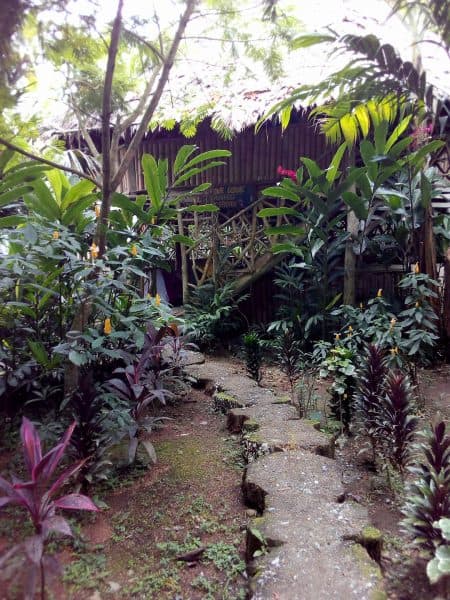
Tell me more about your clans.
GB: My clan is Diuwak. It represents the people who take care of the water. Di means water. Wak is like saying water guardian. The clan is always given or inherited by the mother. For example, we as men can’t pass on our clan [to our children]. Clans are passed on by women. If she has a daughter, she’ll continue the clan. If she has a son, the clan dies there.
RB: I’m from the yam clan. Tubolwak is the yam guardian. We’re a clan related with the soil, with food. We have a vision of taking care of the crops.
Within our social structure, clans are fundamental because they conform our ideology. That’s why we say that our thinking is composed by all of our clans. It’s a collective thinking in which clans contribute to the worldview Sibö left us with.
How would you describe Bribri spirituality?
GB: There’s the spiritual knowledge from the elders, the Awápa. They have a very, very special position in order to help those who have certain sicknesses…[including] cancers, ulcers, headaches.
They apply [natural] medicines, but also put themselves at risk by fighting against the bad spirit the person may have. In order to examine someone, they take four days to investigate the person’s spirit. After those four days the person is told what disease they have. Afterwards, the mother may take care of that person and look for medicinal plants.
If it’s a stomachache, they might try to look for an animal that can take away that illness.
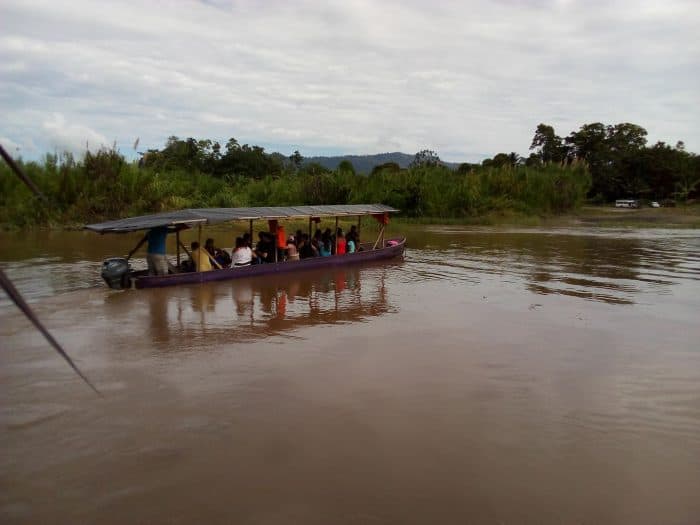
How did you developed the Koswak Usuré project?
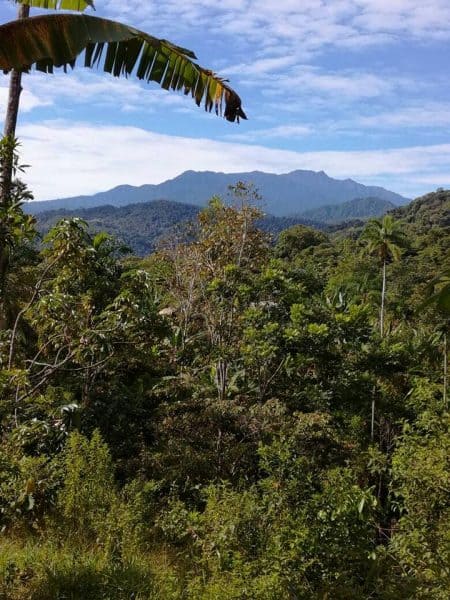
RB: Koswak is a project based on the clan families. Since 2010, we’ve come together to strengthen the cultural part, especially in my community, which is a community strongly influenced by external culture.
There’s a feeling of sadness about that… we decided to do things for ourselves. We can’t expect outside development [to be applied here]. The development model we seek isn’t born in San José. It’s not planned there. It’s not thought of there. It should be from the communities themselves. If it’s going to be tourism, it should be thought of by the community’s people. If it’ll be about agriculture, it should also be thought of by the people.
They shouldn’t be thinking for us; they shouldn’t believe we’re seeking wealth the same way people seek it in the city. We want to live well.
Living well doesn’t mean having a lot of money. It’s about helping each other through something we call jurā manewä, which is hand to hand. You help me and I help you. We see our tourism model based on this practice, which is solidarity tourism. It’s a social model from outside that we want to adapt to our own way of being.
How would you like for Costa Rica to take you into account given the struggles that you have?
RB: We’d like to be given space within political plans about the indigenous territories. Even though many people don’t see it this way, we are discriminated against. We don’t have the opportunity to be taken into account within the national political plans to create our own proposal as to how we want our territories to be.
You already know that in Salitre and other places they’re fighting about this. That’s not their fault. The government doesn’t want to solve the conflict… We want to find [our own] way in each aspect: health, education, agriculture, and family well-being.
We don’t want a PANI [Child Welfare Office] like the one we have now; we want a PANI in an indigenous style. We don’t want an IMAS [Mixed Institute for Social Aid] like the one we have; we want an IMAS in an indigenous style. Why can’t things be contextualized in a better way?
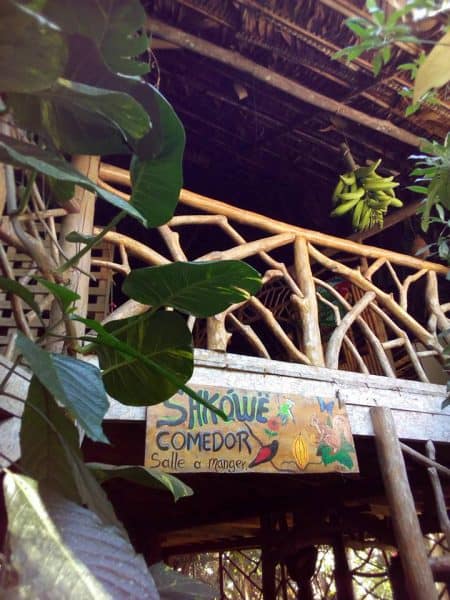
There are many households being built that we don’t want. There are [economic] resources that come our way and we don’t even know why. They’re not justified. I need commitment from behalf of the citizenry as well. It’s a small country, a country that needs to take advantage of its resources, but we need to listen to the people. We need the people to help us build, all together, a mechanism in order to work and have a positive impact on indigenous communities.
Right now we’re set aside, receiving pressure. These are our struggles and our resistance. The government does not provide us spaces in which we’re asked what we propose or how we think about it. From the community, there’s a lot of wisdom to move us forward.
GB: We know that Talamanca isn’t the same as the city. I’d like for the people from the city to support us with nature. We know we have an error, a lack of retrieval or protection for nature. In this moment, the elders say that Mother Earth feels very sad because we’re killing her.
We know that in Costa Rica it’s being protected, but in other places she’s being killed. There are natural phenomena occurring and many things happening. It’s a consequence of not protecting our Mother Nature, which is Iriria.
Roger Blanco and Geider Büitrago visited San José this week to speak about their cultural advocacy at Memorias del Futuro, which are conferences produced by Barrio and held at the Steinvorth building in downtown San José. For more information visit Koswak Usuré’s Facebook page.
Our “Weekend Arts Spotlight” presents Sunday interviews with artists who are from, working in, or inspired by Costa Rica, ranging from writers and actors to dancers and musicians. Do you know of an artist we should consider, whether a long-time favorite or an up-and-comer? Email us at kstanley@ticotimes.net.

